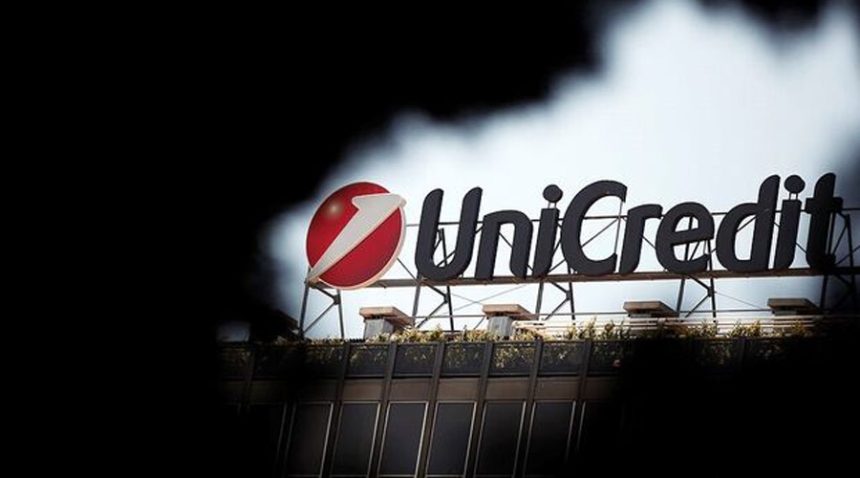Explore why Italy is resisting this high-stakes merger and its impact on the banking sector
Italy’s financial and political landscape was shaken when UniCredit launched a surprise €10 billion ($11 billion) bid to acquire domestic peer Banco BPM. While the move signifies UniCredit CEO Andrea Orcel’s strategic push for consolidation in Italy’s banking sector, it has met resistance from the Italian government, reflecting broader concerns about the implications of the deal for national and European financial stability. This article delves into the reasons behind Rome’s dissatisfaction with the proposed merger, its economic implications, and the larger European banking context.
UniCredit’s Move: A Strategic Bid for Consolidation
UniCredit’s bid to acquire Banco BPM comes in response to recent consolidation activities in Italy’s banking sector. Banco BPM, the country’s third-largest bank, has been active in expanding its footprint, including its recent purchase of a 5% stake in Monte dei Paschi di Siena (MPS) and a €1.6 billion buyout offer for fund manager Anima Holding. Orcel emphasized the urgency of the bid, stating that UniCredit could not remain absent from these developments.
The acquisition would provide UniCredit with an opportunity to realize €1.2 billion in annual pre-tax merger benefits, primarily through cost savings. Orcel projected a return on investment of at least 15%, underscoring the financial appeal of the deal. However, despite these advantages, the bid has drawn significant skepticism from Rome and beyond.
Rome’s Concerns: Key Points of Contention
1. National Interests and Strategic Assets
The Italian government views Banco BPM as a strategically important institution, given its deep roots in Milan’s Lombardy region and its role in the national banking landscape. Economy Minister Giancarlo Giorgetti stated that the deal would be reviewed under Italy’s regulations for protecting key assets, emphasizing the government’s authority to intervene in transactions that could impact national interests.
Rome’s apprehension stems from the belief that consolidating two major domestic banks could lead to centralization of power, potentially diminishing competition and leaving smaller, regional players vulnerable.
2. Economic Sovereignty
Italy has consistently emphasized the importance of maintaining economic sovereignty, particularly in critical sectors like banking. Allowing one of its largest financial institutions to consolidate further raises concerns about job losses, reduced local influence, and increased dependency on foreign-controlled banking entities.
UniCredit’s dual interest in Banco BPM and Germany’s Commerzbank has amplified these fears. Critics argue that such moves could stretch management resources and expose Italy’s financial institutions to external risks, especially given Germany’s resistance to Italian-led takeovers.
3. Low Premium Offer
UniCredit’s all-stock proposal offers a mere 0.5% premium over Banco BPM’s closing price before the bid, far lower than previous consolidation deals in Italy. For instance, Intesa Sanpaolo’s acquisition of UBI in 2020 provided a 28% premium, later increased to 45%. This discrepancy has fueled skepticism about whether the offer adequately compensates Banco BPM’s shareholders and reflects its true value.
4. Timing and Market Dynamics
The timing of the bid has also raised eyebrows. UniCredit has simultaneously signaled its intent to acquire up to a 29.9% stake in Commerzbank, which could lead to a full takeover of the German bank. Critics argue that engaging on two major fronts risks overextending UniCredit’s resources and management bandwidth. Orcel dismissed these concerns, stating that the Banco BPM integration would be complete before any Commerzbank deal progresses, but this assurance has done little to assuage fears.
The Broader European Context
Resistance to Cross-Border Mergers
Rome’s resistance to the UniCredit-Banco BPM deal mirrors broader European skepticism toward banking consolidation. Germany has opposed Orcel’s ambitions to acquire Commerzbank, citing job losses and concerns over Italian sovereign risk. Similarly, Spain blocked BBVA’s bid for Sabadell, reflecting a pattern of national governments prioritizing domestic control over cross-border synergies.
Italy’s Banking Sector Challenges
Italy’s banking sector has long been plagued by low profitability, high levels of non-performing loans, and structural inefficiencies. While consolidation is seen as a potential solution to these challenges, it also raises questions about the impact on competition and financial stability. Rome’s cautious approach reflects the delicate balance between fostering consolidation to create stronger banks and preserving a competitive market landscape.
Banco BPM’s Role and Response
Banco BPM, a key player in Italy’s banking sector, has recently taken strategic steps to bolster its position, including its investment in MPS and its bid for Anima Holding. These moves signal its ambitions to remain independent and competitive in a consolidating market.
While Banco BPM’s board has begun discussing UniCredit’s bid, no immediate response has been made public. However, the involvement of France’s Crédit Agricole, Banco BPM’s largest shareholder, adds another layer of complexity. Crédit Agricole’s stance on the deal could significantly influence its outcome.
Potential Outcomes and Implications
1. Regulatory Hurdles
The deal must secure approval from the European Central Bank (ECB) and antitrust authorities, both of which are likely to scrutinize its implications for competition and financial stability. The ECB’s recent caution toward cross-border mergers suggests that gaining regulatory clearance may not be straightforward.
2. Pressure on UniCredit
UniCredit’s leadership faces significant pressure to justify the bid’s financial and strategic merits. Offering a higher premium or introducing a cash component, as Intesa Sanpaolo did in its UBI acquisition, could make the deal more appealing to Banco BPM shareholders but would strain UniCredit’s finances.
3. Impact on Italian Banking Consolidation
If successful, the deal could accelerate consolidation in Italy’s banking sector, creating a stronger competitor to Intesa Sanpaolo. However, failure could embolden smaller players to resist similar bids, complicating future consolidation efforts.
The UniCredit-Banco BPM deal represents a pivotal moment for Italy’s banking sector, reflecting broader tensions between national interests and market dynamics. While the merger offers potential financial benefits and efficiencies, Rome’s concerns about economic sovereignty, job security, and market competition cannot be ignored. As regulatory and shareholder discussions unfold, the outcome of this deal will have far-reaching implications for Italy’s financial landscape and the European banking sector at large.






